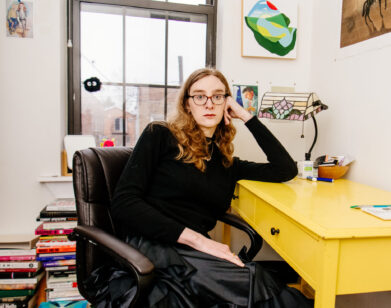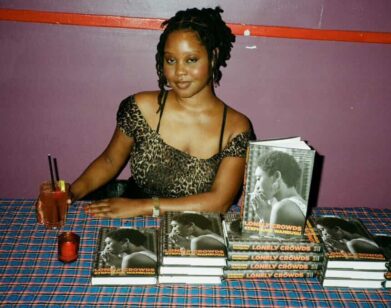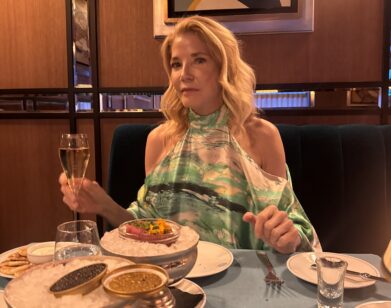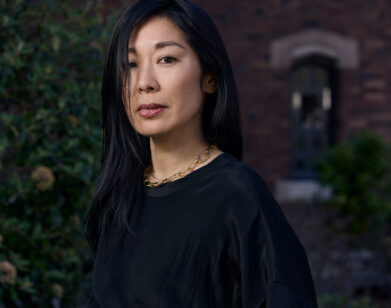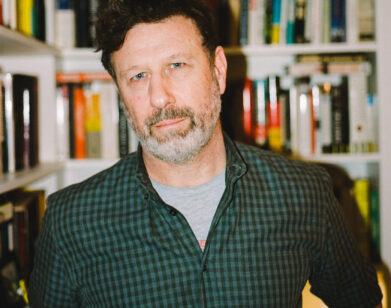Michael Christie, Author of Greenwood, Wants to Save the Trees
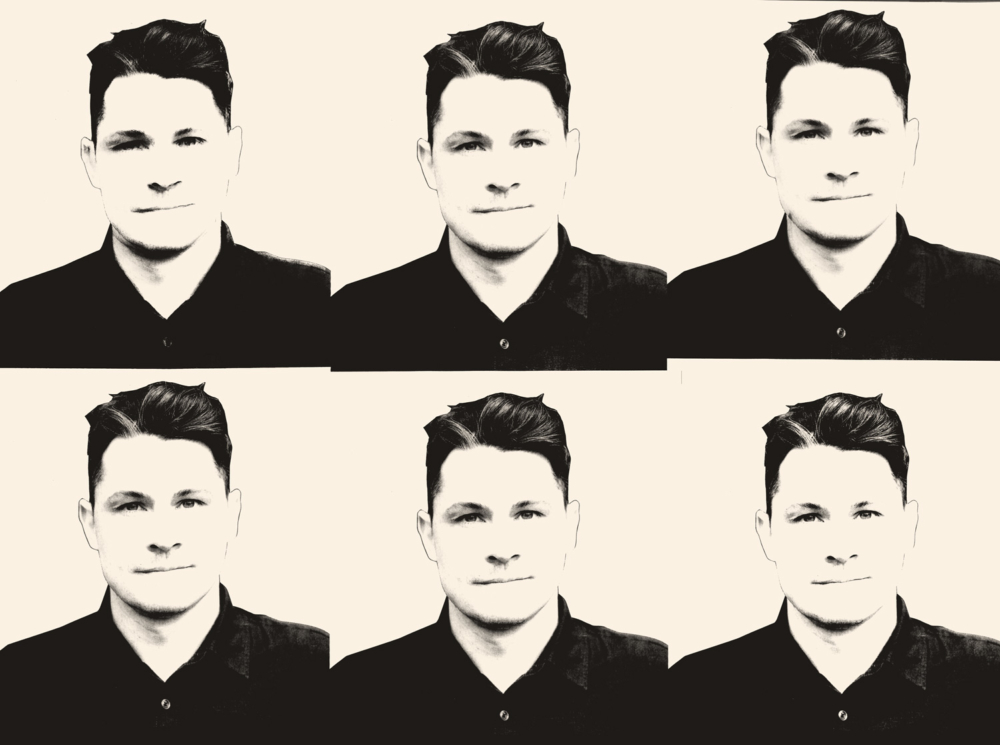
Greenwood, by Michael Christie, is historical, speculative piece of climate fiction wrapped up in four generations and 501 pages. Christie’s book starts and ends in 2038 with Jacinda Greenwood—she goes by Jake—a hopeful biologist-turned-alcoholic tour guide on one of the last remaining nature preserves in the world. A visit from a lawyer turns the futuristic plot on its head as Christie begins to unravel Jake’s family history in reverse to reveal the origin story of the Greenwood family. We see a brief and haunting portrait of Jake’s father flash before our eyes, before meeting Willow, Jake’s eco-radical grandmother. What feels like the middle is only the beginning, when we finally land in the Depression-era drama Christie has cooked up. There’s a baby swap, a seven-foot-tall bounty hunter, and worst of all, a tree destroying capitalist. We spoke to Christie about eco-tourism, direct action, and the ongoing feud between millennials and boomers.
———
SHANTI ESCALANTE: This book spans generations and historical events. How did you even get started?
MICHAEL CHRISTIE: I don’t even really know. Often my writing ideas begin with characters, just sort of a sense of a person that I get kind of early on. And then particularly with this book, it was just basically building up the layers of time because I knew I wanted to write something that spanned time in telling the story of a particular family. So it began with a few of the characters. Then came a long, agonizing, and also amazing process of just filling out the story.
ESCALANTE: Reading this book is almost like watching a train wreck happen in reverse. It’s incredible to see the beginning of something like an extractive corporation. Was that the question at the bottom of your desire to write this: how does this destruction even begin?
CHRISTIE: Yeah. I mean, obviously, it turned out to be a climate crisis novel, but that wasn’t how it began. But when you’re writing a book like this, if you’re just sounding an alarm about something like the climate crisis, you can’t have 500 pages of an alarm. It would drive everyone insane. So I think what was really interesting to me was to dive into this idea that nature is something for the human being to shape and to extract from and to destroy, but also to revere, and try to question this idea of what is our relationship with nature, and with forests and trees.
Particularly the most current section, the 2038 section, where wealth inequality has risen to this horrific degree. The wealthy are the only ones who have access to nature. It was an idea that I found so disturbing, and I think you can see the roots of it already beginning. I live on a small island off the coast of Vancouver. It’s beautiful and there’s old growth Douglas firs and cedars. It’s getting to the point where I’m starting to notice that it’s mainly wealthy people who are coming over to access this place.
ESCALANTE: Right. I mean, my family is from Mexico and that was always something that I very quickly observed. I kept seeing how the most wild and untouched places were where all these really, really rich folk would come to live. And then eventually it would become a Cancún and get totally obliterated. Then these people would go and find some other new unspoiled spot. It’s not new, but it’s getting worse.
CHRISTIE: You’re right. It’s not a new thing. People have called this novel dystopian, which I’m a little bit uncomfortable with because it’s really not that far in the future. The things that I’m imagining really didn’t require too much creativity in the sense that it just felt like a normal progression from where we are now. I’m sorry to say that.
ESCALANTE: One of the surprising things is that you’re in the beginning of the book in this almost sci-fi world, and then you realize this is, like, what, 20 years away? 2038. It’s not so far removed at all.
CHRISTIE: Totally. That was really important to me—just keeping it as un-futuristic as possible. Even on the island where I live, there’s the western red cedar and those are already dying. It’s this beautiful tree that’s been used by indigenous cultures for thousands and thousands of years for various things. The repeated drought stress due to climate change is causing them to die now. So the great withering did not take much imagination.
This is another thing that the book gets at. Nature and trees seem so resilient, and they seem so strong, and they seem so limitless that even now, as we are actively degrading them and killing them, we still believe that they are all powerful and that we ultimately can’t destroy them.
ESCALANTE: I sense that this is not just the perspective people have of trees, but also of people. The kind of tenacity of the Greenwood family is not just so much built on this idea that you can thrive, but rather that life is possible and will continue to be possible, and that’s all we really have to cling to.
CHRISTIE: I did a whole bunch of research around the Great Depression in Canada and the U.S. What I ended up with at the end was this deep respect that I have for the resilience of human beings. I think that it feels like the world is ending for the first time right now, and it is different than the past. But I do think that we can draw inspiration and draw strength from people who have come before us who have struggled through massive calamities, who have worked collectively, and who have banded together, and who have been resourceful to survive those things. I think that that human ability is going to be what allows us to make it through this. I mean, it’s certainly not going to be our ability to consume massive amounts of resources that’s going to save us.
ESCALANTE: It’s really hard to keep a historical perspective when it just seems like you’re waking up and things are just immeasurably worse than they’ve ever been. But reading your book reminded me, like, “Wow. Shit has been hard forever.”
CHRISTIE: Absolutely. I think that’s the true benefit of history, and reading history. I just listened to a podcast with Ken Burns, the PBS documentary guy, and he said something like, history doesn’t repeat itself, but it rhymes. I love that idea that there are these echoes through history. Trump is obviously his own thing, but we’ve seen people like this before. It’s important to remember how that played out in the past, and how we can try to affect things now by listening to those rhymes with the past. What fascism sounded like in the past, and what it sounds like now. I think that’s really important, and it gives me hope too, because you don’t feel so alone in the present when you have the past to comfort you.
ESCALANTE: It feels like there’s this pressure to frame what we’re living through as exceptional because if it’s not exceptional, then why should we change?
CHRISTIE: That’s so true. And it’s paralyzing, right?
ESCALANTE: How do you help yourself regain a feeling of agency in the midst of this?
CHRISTIE: I really try to focus on community-based stuff. I try to shy away from online activism, I guess. I find that if I focus more on problems within my city, or within my community, that I get a lot more out of it and it makes me feel a lot more connected to what sort of changes that I can actually feel. Then, also with my work. I don’t by any means think of myself as a political novelist or something like that, but obviously I’m interested in these problems. So while I don’t think Greenwood is going to be convincing a climate change denier that this is in fact real, I do think the more that we deepen our understanding of these particular ideas, the more we are prepared to deal with the future.
ESCALANTE: People need narratives to show them how to cope or how to conceptualize the things that they’re living through. And if there are no narratives that address environmental issues or climate change, how are we going to know what roles to play? Like, what does a hero look like in this situation? You know?
CHRISTIE: That’s a great way to think about it. One of the things the book is doing is showing this evolving idea of the human relationship with nature through time. And in the future, we are going to need to evolve our conception of our place in the world into something better than what we’ve come up with before. A lot of writers and thinkers and indigenous cultures have got this right for a long time. But we’re going to have to really buy into this new idea that the earth is not our supply closet and dumping ground. That it is a living thing that we have to live in symbiosis with.
ESCALANTE: Right. I’ve been hearing a lot about the TransCanada Pipeline protests. That seems to be reaching a head right now near Toronto. Have you been working around that at all?
CHRISTIE: Yeah. I mean the big thing now is this Unis’tot’en blockade that’s going on in Northern BC where indigenous groups are trying to block the building of a natural gas pipeline that’s coming from Eastern Canada. Just today, the federal police, who are called the RCMP here, have just announced they’re going to be pulling out of this kind of contested site of this pipeline with the hopes of further negotiation. So it looks like it could be a little bit of a victory, which is really, really exciting.
That’s the kind of stuff that I am focusing on personally with my and my family’s time and energies. Canada is a nation founded upon resource extraction and the colonization of indigenous people. Those legacies are something that I think everyday Canadians are only beginning to come to terms with. These fights over things like pipelines or mines or other environmentally questionable activities are flash points for these long-standing issues that Canada has always been facing.
ESCALANTE: Activism is a big part of Greenwood’s narrative. Both you and Richard Powers in The Overstory have your characters engage in direct action by sabotaging different machines and things like that. Why is that? Is policy work just not a good story? Or is direct action the only thing we have left to do?
CHRISTIE: I think anytime people step outside the law to achieve a particular goal, I think they’re doing that because they don’t feel that the avenues are open to them within the law to get that necessary change done. Obviously, there’ve been some great instances of direct action in the past, but I think there have also been some not so great ones. There were some folks in Vancouver in the ’80s called the Squamish Five and they were against what they saw as negative environmental projects in the area. I think they bombed an oil refinery, but unfortunately there was a security guard there who died. It’s a very tricky subject, and I certainly don’t think I’ve solved it with my book. But I do think that nonviolent direct action I find particularly interesting, and I think that it can be done very effectively.
At the same time, you mentioned storytelling. It’s very easily spun by the powers that oppose it as a sign that these groups are insane, or they’re violent, or they’re lawless. So it’s a double-edged sword, I think, and I’m not sure ultimately what the best form of activism is. Do you know what I mean? What do you think about that?
ESCALANTE: We’re dealing with a similar issue right now in New York because of the FTP protests organized by Decolonize This Place to resist the presence of police in the subway system. There was a lot of nonviolent direct action. Predictably, these protests have been spun to frame this movement as being insane or somehow terrorizing.
CHRISTIE: Totally. Yep.
ESCALANTE: It’s too bad that it gets propagandized so easily. But the truth is most of the systems by which to address our grievances are built to be inaccessible, or confusing, or you need a lot of money or knowledge to make them work for you. We’re stuck between a rock and a hard place, I think.
CHRISTIE: I totally agree. The character in my book, she is a person who very passionately believes in environmental causes and does practice a more benign form of nonviolent eco-sabotage, like monkeywrenching. I think there’s a famous book about it. So I liked that. I like that character because she’s not really extreme in a sense, but she definitely has agency, and she is trying to, in a way, right the wrongs of her family legacy and do kind of a correction.
But that being said, she’s also a character who has a strongly held ideology that has some sort of negative consequences for her son. I live on a very hippie island, and a lot of the time you can see these negative legacies, a lot of these more alternative forms of parenting or commune type situations where maybe the kids’ needs weren’t being attended to quite as well as they could have been. So I wanted to get that in there as well. I didn’t want Willow just to be like a noble climate warrior. I wanted her to pay the price for that as well.
ESCALANTE: There’s a consistent theme in which generations are really struggling to communicate across time. Do you think part of our environmental problems are coming from the fact that there is no stable community to pass down information and ways of being in stable ways?
CHRISTIE: Absolutely. This notion of intergenerational communication and inheritance is really baked into the book. So while I was writing, I thought a lot about what is passed down. Whether it is property. Whether it is money. Whether it is ideology. Whether it is trauma. Whether it is pain. I’m really, really interested in how these things are transmitted and received over these gaps between generations. Also, during the writing of this book, both of my parents died. Both of them had cancer. I also had two kids during the writing of this book. So I really became newly appreciative of the fact that I’m this link in this generational chain. I was thinking a lot about what my place is within that and the fact that I’m bringing, along with my partner, new people into the world and what I’ll be passing to them.
I do think that you’re very right to say that there has been some kind of breakdown with respect to this intergenerational communication. I think there’s something about society now that really pits generations against each other. I think that force does a lot of damage. I’m thinking of millennials and boomers. I used to read all these articles about it and it just seems so reductive and counterproductive to think of these generations as these intractable groups who simply can’t see eye to eye on anything. I wanted to get into how that was functioning within this family, and how certain people will often live their lives as a kind of protest against the lives that came before their own. I think people do that when there is not a dialogue and when there’s not an open communication between generations.
ESCALANTE: Did you grow up with trees?
CHRISTIE: I did. I grew up in a place called Thunder Bay, Ontario, which is just north of Duluth, Minnesota. There is a pulp and paper mill there. My family, we’re all working class people who worked in resource extractive type jobs. Thunder Bay is a place that was born of the fur trade in Canada, which was another extractive industry. I grew up appreciating trees because I was playing in the forest most of the time as a kid. But then I was also baffled by how important these industries were to my own family’s livelihood and the livelihood of certainly the settler culture there as a whole. It was a lot of fun to write a book about trees that wasn’t a simple idea of them and tried to encapsulate all the different ways we look at them.
ESCALANTE: I grew up on Long Island. That’s a place that’s been clear cut twice over, the woods are kind of grey and spindly. Plus, the ticks. So as I was reading your book, I was reading about this entire relationship between people and forests that I had never really gotten acquainted with. It’s scary to think how much is already lost that I’ll never really know is lost.
CHRISTIE: I just read the new Jenny Offill book and she talks about something in it called solastalgia. Have you heard of this? It’s like nostalgia for the depleted natural world. A nostalgia for the earth of the past, or even nostalgia for the present that we know is vanishing. I mean, that is such a powerful emotion and I think about it all the time with my own kids. I’m reading them books about polar bears every night with no idea whether these things are going to exist by the time they are 20 or whatever. It’s a very disturbing idea.
But I think the project of the novel is to get at the threat to nature that has been present, but also to get at the wonder of nature and this splendor of being among trees and forests, and just how important that is psychologically to the human being. There’s so much research that backs this stuff up. It’s incredible just how positive the experience of being in trees is for all of us. And so I was hoping to invoke that a little bit in the reading experience.

